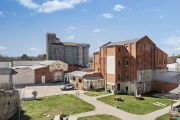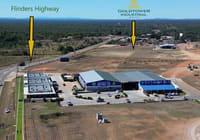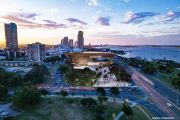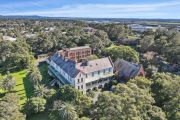
Catholic Church in $38m property spending spree across Newcastle
Carrie Fellner
The Catholic Church has splurged about $38 million in five years as it aggressively expands its property portfolio across the Hunter, sales data shows.
A Newcastle Herald analysis of Australian Property Monitors data can reveal the Diocese of Maitland-Newcastle has been snapping up real estate in the inner city hot spot of Newcastle West, where the church has its headquarters.
It has shelled out $6.5 million for additional office space on Selma Street and at the former Pettigrew Family Funerals headquarters on Hunter Street.
The string of inner-city purchases also includes $3.08 million for the former Empire Hotel site, which it plans to develop into residential units and affordable housing, and $1.3 million for land to expand St Nicholas Early Education.
In 2014, the Diocese paid $4.9 million to Newcastle council for three Parry Street properties which previously harboured a school. A development application has been lodged for a library and parking on the site.
Another big ticket item was $4.6 million for an acreage on Wine Country Drive at Cessnock, earmarked for a future high school, early learning centre and other community facilities.
There have been calls for the church to be more transparent about its wealth, following an investigation by Fairfax Media that found it misled the Royal Commission into Institutional Responses to Child Sex Abuse by grossly undervaluing its property holdings in Victoria and NSW.

At the same time, the church claimed it would have to cut social programs to fund increased compensation payouts for abuse survivors.
Greens MP David Shoebridge was scathing about the spending spree.
“An institution that has so appallingly failed children in its care needs to prioritise survivors and victims before it spends millions on an expanded property portfolio,” he said.
“It’s not just the Catholic Church, a number of institutions have claimed they don’t have the resources to help victims, but time and again they have the money to spend on themselves.
“As always, it’s a case of follow the money rather than the rhetoric.”
A spokesperson for the Diocese wouldn’t confirm the $38 million figure or comment on the overall worth of the church’s property portfolio in the Hunter.
He did point out that many of the assets were not purchased outright, and therefore did not reflect the overall wealth of the church.
“Much of any recent acquisitions have been funded by debt through the Catholic Development Fund (CDF),” he said.
“The CDF’s purpose is to support the work of the church to develop schools, early education centres, social services offices and so on … we caution against simply taking the asset value on the balance sheet, as there are offsetting liabilities.”
The spokesperson stressed that its purchases were driven by the need to expand services to the community.
“The market value of church property is not our chief priority and only some properties have current valuations,” he said.
“It is the value that those properties can contribute to our community through their use as schools, affordable housing, early learning centres, social services offices, libraries, refugee centres and so on.”
The lion’s share of the church’s property spend – $35.4 million – was by the Trustees of the Roman Catholic Church for the Diocese of Maitland-Newcastle, the records show.
The Trustees of the Marist Brothers spent a further $1.9 million on properties at Hamilton South and Merewether, while an order of nuns known as the Sisters of the Holy Family Nazareth spent $544,000 on a property at Thornton.

While the church is empire building in some areas, it also stands to rake in millions of dollars through the sales of other properties deemed surplus to needs.
The largest of those is the former Steggles site at Black Hill, which spans around 300 hectares near John Renshaw Drive.
Last year, the state government approved an application to rezone two-thirds of the site from rural to industrial.
The diocese purchased the land for $6 million in 2003 with intentions to build a school, before a change of plans saw it earmarked for a freight hub. The future of the site is now under review.
Plans for a $2.8 million site on Cessnock Road at Gillieston Heights are also under a cloud. The block was acquired for a new childcare centre, before the decision was made to build elsewhere.
The diocese has abandoned plans for two disability group homes and affordable housing on land it owns at 5 Birkwood Close, Charlestown. It recently listed the site for sale with an asking price of $1.8 million, with DA approval for a 10-lot subdivision.
“The original intention was to develop affordable housing and housing for people with a disability,” the spokesperson said.
“The government schemes which were planned to be used for this have been cancelled or are no longer suitable.
“If this site is sold, any funds from the sale would be partly distributed to the adjoining school which is undergoing a major upgrade and partly to other church projects.”
However the diocese has forged ahead with a $4 million affordable housing development at Mount Hutton, with 25 new homes constructed on Wilsons Road.
Much of the property spend has been for new schools and the expansion of existing schools on “cramped” sites. $2.97 million was paid for the future site of Catherine McCauley College in Medowie, with $1.29 million to expand St Joseph’s Primary School at The Junction and $1.2 million to expand the playground of Corpus Christi Primary School at Waratah.
The diocese has made some of Australia’s highest average compensation payments to child sexual abuse survivors, with the figure at $26.6 million in February last year.
This story originally appeared in the Newcastle Herald.










